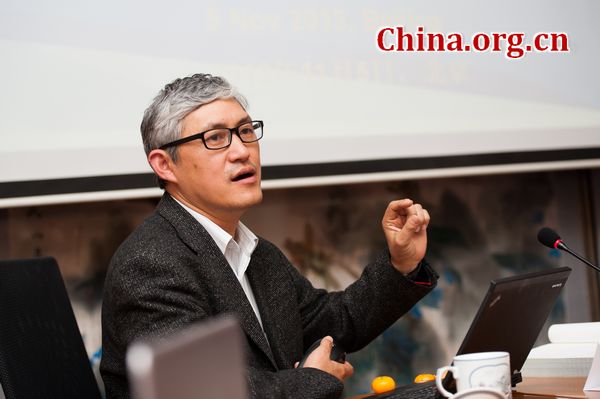UNEP report highlights emissions gap
- By Chen Boyuan
 0 Comment(s)
0 Comment(s) Print
Print E-mail China.org.cn, November 6, 2013
E-mail China.org.cn, November 6, 2013
The window to keep global temperature rise below two degrees Celsius is diminishing as the international community fails to narrow the greenhouse gas emissions gap, the United Nations Environment Programme (UNEP) has warned.
This latest report was launched on Tuesday, as world leaders are preparing to meet in Warsaw, Poland, for the UN Climate Change Conference running from Nov. 11 through Nov. 22.
The Emissions Gap Report 2013 found countries were still aiming for the two degrees Celsius target, not to narrow the gap, which they had previously pledged to do, and this will only exacerbate the climate change challenge after 2020, during the second commitment period of the Kyoto Protocol.
According to the UNEP, scientists agree that the risks of irreversible damage to environment would increase significantly should the global average temperature rise above two degrees Celsius by the end of the century, compared to pre-industrial levels.
The report argued that if the gap was not closed or significantly narrowed by 2020, the option to limit the temperature increase by just 1.5 Celsius, mostly proposed by developed countries, would not be possible.
The latest report from the Intergovernmental Panel on Climate Change confirmed that human activity is "extremely likely," meaning a 95-100 percent probability, to have caused global warming.
Jiang Kejun, one of the report's primary writers, and a fellow at the Energy Research Institute under the National Development and Reform Commission (NDRC), said that such challenges would mean higher rates of global emissions reductions in the medium term, a greater shutdown of carbon-intensive industries, and greater dependence on often unproven technologies.
China has already started implementing some of these measures. In the capital, Beijing, up to half of all motor vehicles are banned from the roads on heavily polluted days, and small but high-carbon intensive industries have been also ordered to halt production, in a bid to prevent the air quality from worsening.







Go to Forum >>0 Comment(s)